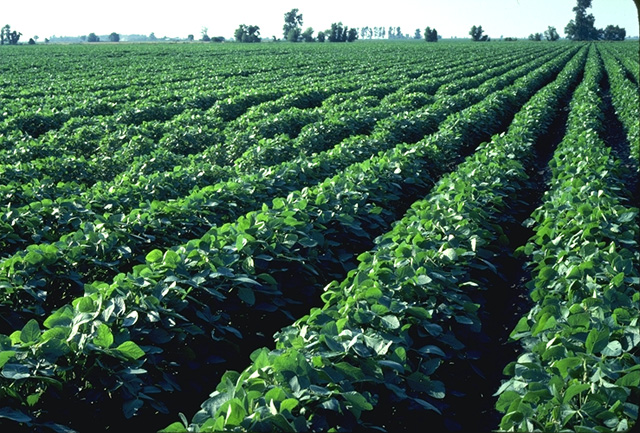Nov 05 2020
Crop Yield with Higher CO2
 One of the arguments often put forward by global warming deniers is that CO2 is not a pollutant, and in fact higher CO2 is good for crop yield. This point is invoked during their shifting defense – the planet is not warming; well, OK, it’s warming but it’s not due to humans; alright, humans are to blame but this won’t necessarily be a bad thing. See – CO2 is good for plants.
One of the arguments often put forward by global warming deniers is that CO2 is not a pollutant, and in fact higher CO2 is good for crop yield. This point is invoked during their shifting defense – the planet is not warming; well, OK, it’s warming but it’s not due to humans; alright, humans are to blame but this won’t necessarily be a bad thing. See – CO2 is good for plants.
While this core claim is somewhat true, it needs to be put into perspective. First, as a risk vs benefit, raising global CO2, with all the downstream negative effects, is a terrible way to increase crop yield. But a new study looks at 30 years of data to address the underlying premise – what is the net effect of rising CO2 levels on crop production? The short answer is, while some crops increase yield, the overall effect is complicated.
The first distinction we need to make is between C3 and C4 crops, which refers to the type of photosynthesis used. In the C4 pathway some of the energy is used to concentrate CO2 in the chloroplasts, resulting in a higher efficiency of turning light into energy. C4 plants include corn and sugarcane. For these crops there is no benefit in yield from higher CO2 levels. C3 plants do not have this adaptation and they are more dependent on ambient CO2 levels, and they do benefit from higher CO2. But there are some important caveats to this.
What the study showed is that the overall average increase in yield among C3 crops to rising CO2 in the last 30 years is 18% “under non-stress conditions”. That last bit is important because that increase is significantly reduced if there is not enough nitrogen available to take advantage of the higher CO2, which is the case in most of the non-industrialized world. Further, the rising temperature that accompanies the higher CO2 decreases the yield, and also increases loss to pests. Wet conditions, which are also important for yield, reduce the benefit from CO2, however, which is greatest under drought conditions. So overall there has been a modest increase in yield in some crops in industrialized farming where increased nitrogen if available.

 Retraction Watch
Retraction Watch  I like to keep my mental model of the universe updated as much as possible. One of the things I learned not too long ago about the universe is the frequency of “rogue” planets. These are planets that are not bound to any star. The dominant current theory is that most of these rogue planets formed in stellar discs just like bound planets but then at some point in their history interacted with another large body and were flung out of their stellar system. In fact, most planets that form in a stellar system may have unstable orbits that will doom them over the cosmological short term to either collide with another body, fall into their parent star, or get flung out of the system. Only those planets with stable orbits remain, and so eventually systems will settle down with a relatively few planets in stable orbits.
I like to keep my mental model of the universe updated as much as possible. One of the things I learned not too long ago about the universe is the frequency of “rogue” planets. These are planets that are not bound to any star. The dominant current theory is that most of these rogue planets formed in stellar discs just like bound planets but then at some point in their history interacted with another large body and were flung out of their stellar system. In fact, most planets that form in a stellar system may have unstable orbits that will doom them over the cosmological short term to either collide with another body, fall into their parent star, or get flung out of the system. Only those planets with stable orbits remain, and so eventually systems will settle down with a relatively few planets in stable orbits.




